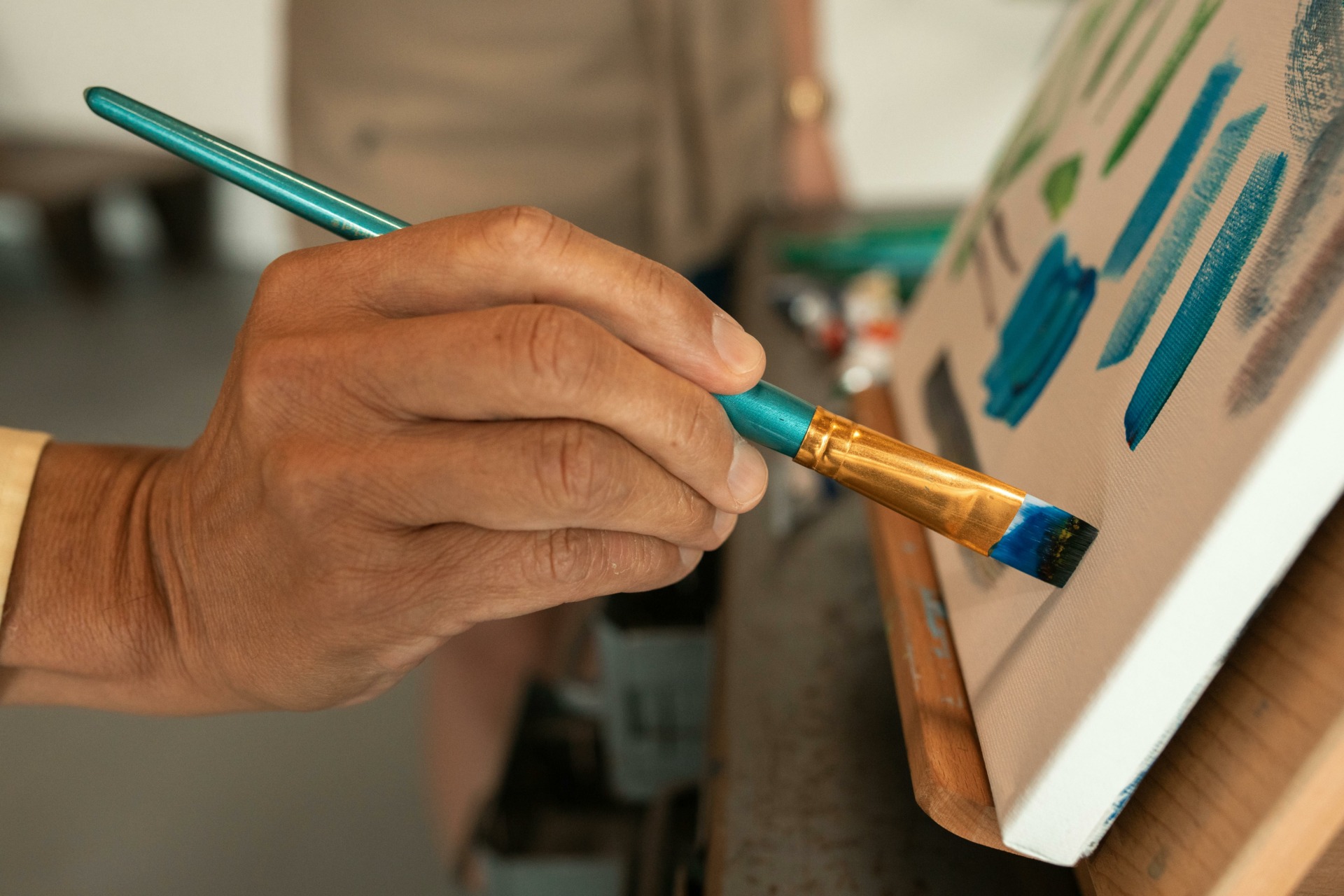In the hustle and bustle of daily life, it’s easy to overlook the importance of hobbies and creative pursuits—especially as we age. But research consistently shows that engaging in hobbies and tapping into creativity play a powerful role in maintaining mental well-being, improving cognitive function, reducing stress, and even boosting physical health.
The best part? You don’t have to be a professional artist, writer, or musician to enjoy the mental health benefits of creativity. Whether it’s gardening, painting, baking, or even tinkering with gadgets, hobbies can be a lifeline for emotional balance and personal fulfillment—especially in older age.
Let’s explore how hobbies and creative outlets can support your mental well-being and how to reignite your passion for personal projects.
🧠 How Hobbies and Creativity Support Mental Health
✅ 1. Reduce Stress and Anxiety
Engaging in hobbies acts as a natural stress reliever. When you’re focused on an enjoyable task—whether it’s knitting, painting, or playing an instrument—your mind enters a state of flow. This state, often described as being “in the zone,” helps lower cortisol levels (the stress hormone) and induces a sense of calm.
💡 Tip: Activities that require repetitive motions, like knitting or woodworking, can be particularly meditative.
✅ 2. Boost Mood and Combat Depression
Hobbies trigger the release of dopamine, the brain’s “feel-good” chemical, leading to improved mood and a stronger sense of satisfaction. Studies have found that people who regularly engage in hobbies are less likely to experience depression and more likely to report a higher quality of life.
💡 Tip: Choose hobbies that spark joy and excitement—even simple activities like cooking or gardening can provide a major mood boost.
✅ 3. Enhance Cognitive Function and Memory
Keeping your brain active is crucial as you age. Creative hobbies like puzzles, painting, writing, or playing music challenge your brain, helping to improve memory, sharpen problem-solving skills, and even lower the risk of cognitive decline and dementia.
💡 Tip: Try learning a new skill, like photography or a foreign language, to keep your brain on its toes.
✅ 4. Foster Social Connections
Many hobbies offer opportunities for social interaction—a key factor in maintaining mental well-being, especially for older adults. Whether it’s joining a book club, attending a pottery class, or participating in community gardening, social hobbies help combat loneliness and build meaningful relationships.
💡 Tip: Look for local classes, workshops, or online hobby groups to meet like-minded people.
✅ 5. Provide a Sense of Purpose
Retirement, life transitions, or simply having more free time can sometimes leave older adults feeling a loss of purpose. Hobbies offer a reason to get out of bed, something to look forward to, and a sense of accomplishment when you complete a project or master a new skill.
💡 Tip: Consider hobbies that allow you to contribute or give back—like volunteering, crafting for charity, or community gardening.
✅ 6. Improve Physical Health
Some hobbies naturally incorporate physical activity, which directly benefits mental health. Gardening, dancing, hiking, or even light yoga not only keep you moving but also reduce stress and promote better sleep.
💡 Tip: Choose activities that get you moving while still being enjoyable—think tai chi in the park or birdwatching during long walks.
🎨 Popular Hobbies That Boost Mental Well-being
1. Gardening 🌱
Great for stress relief and offers light physical exercise. Plus, spending time in nature has been shown to lower anxiety and depression.
2. Painting & Drawing 🎨
An expressive outlet that promotes relaxation and improves fine motor skills.
3. Writing & Journaling ✍️
Writing can help process emotions, reduce stress, and improve mental clarity. Start with a simple gratitude journal or creative writing prompts.
4. Music 🎵
Whether you’re learning an instrument, singing in a choir, or just listening to your favorite tunes, music has powerful mood-boosting effects.
5. Reading & Book Clubs 📚
Reading helps improve cognitive function, and joining a book club adds a social component that enhances well-being.
6. Cooking & Baking 🧁
Experimenting with new recipes stimulates creativity and can also be a mindful, therapeutic practice.
7. Photography 📷
It encourages you to get outdoors, notice details, and appreciate the world around you.
8. Puzzle Games & Strategy Board Games ♟️
Great for improving memory, strategic thinking, and problem-solving skills.
9. DIY Crafts & Woodworking 🛠️
Hands-on activities reduce stress and offer a great sense of accomplishment when a project is completed.
10. Volunteering 💖
Helping others fosters a sense of community and purpose, which can significantly boost mood and self-esteem.
🏆 How to Find (or Reignite) Your Passion for Hobbies
- Think Back to Childhood Interests: What did you love doing as a kid? Sometimes rekindling an old passion can bring back that same sense of joy.
- Start Small: You don’t have to dive into a complicated project right away. Try a beginner’s class, a short workshop, or a simple DIY kit.
- Combine Hobbies with Wellness Goals: If you want to move more, try dancing or gardening. If mindfulness is your goal, consider painting or yoga.
- Schedule Time for Hobbies: Treat hobby time as self-care. Even 30 minutes a few times a week can make a big difference.
- Experiment Without Pressure: Don’t worry about being perfect or productive. The point of hobbies is enjoyment and fulfillment—not mastery.
🌟 Final Thoughts: A Little Creativity Can Go a Long Way
Hobbies and creative activities aren’t just “nice-to-haves”—they’re essential tools for mental well-being, cognitive health, and emotional balance. They help us cope with stress, combat loneliness, and add meaning and joy to our lives.
Whether you’re picking up an old passion or discovering something completely new, it’s never too late to start. Even a few minutes a day spent doing something you love can have a powerful impact on your overall happiness and health.
✨ So go ahead—plant that garden, pick up that paintbrush, or dive into that novel you’ve been meaning to read. Your mind (and heart) will thank you. 💖
What’s your favorite hobby? Share it in the comments—I’d love to hear how it’s improved your well-being! 😊
Photo by RDNE Stock project: https://www.pexels.com/photo/person-holding-blue-and-brown-paint-brush-5757074/


